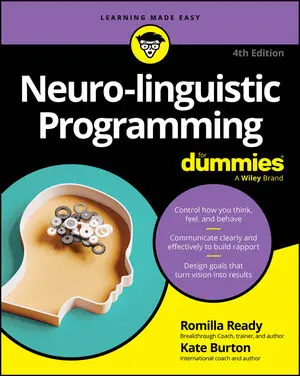- Book & Article Categories

- Collections

- Custom Solutions
 Main Menu
Main MenuBook & Article Categories
 Main Menu
Main MenuBook & Article Categories
Romilla Ready
Romilla Ready works as a trainer and executive coach. Having realised that the common denominator in any interaction - whether that causes stress or gives pleasure - is people she developed and delivers relationship Wizardry® in Business. These are workshops where her clients learn to build profitable relationships by understanding the psychology of communication. Romilla also offers a potent blend of NLP and metaphysics in her Breakthrough Coaching for executives who experience fast, powerful results. Some of the positive 'side effects' experienced by Romilla's clients are a reduction in stress and an increase in personal effectiveness. Romilla also plays matchmaker at her public workshops, Relationship Wizardry® for Singles where people learn about creating their dream relationship.




